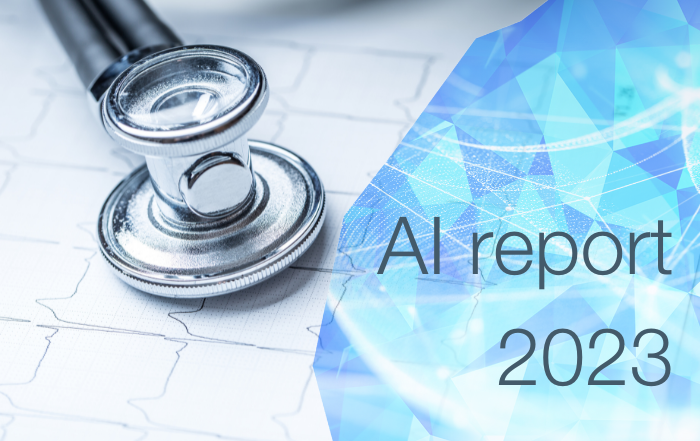- AI patent applications in the medtech sector have quadrupled since 2018
- Percentage growth of AI patent applications in the sector surpassed overall AI growth between 2014 and 2021
- Analysis suggests the sector is more focused on prediction, prevention and intervention than treatment
- Bioinformatics is the only subcategory where growth accelerated in 2022
Artificial Intelligence (AI) is changing the future of all industries, but findings published today by intellectual property firm, Marks & Clerk, reveal the medical technology (medtech) sector is surging ahead. The number of AI-based patent applications filed by the sector has almost quadrupled since 2018 to 2771 medtech publications in 2022. But most strikingly, as a standalone sector, the year-on-year percentage growth in the number of AI applications filed repeatedly surpassed that of overall AI between 2014 and 2021.
Breaking the findings down by subsector, the report reveals the specific fields of work driving the industry’s impetus. Whilst AI-based medical imaging and diagnostics dominated the number of applications published in 2022 with a combined 3018 applications, the number of filings in the field of AI-based drug discovery was just 12 last year – down 30% from 2021.
There are various possible explanations for this decline – it could be that the latest technology is still maturing, or that inventors have concerns over its patentability with regards to sufficiency and its ability to demonstrate a technical effect, but it is just as likely that inventors are taking a longer-term strategy that will instead see them applying for patents to protect the drugs they develop, opting to keep the process of discovery confidential.
Tim Hargreaves, partner and medtech specialist at Marks & Clerk, comments:
“The medtech sector’s dominance in AI-based patent applications reflects its place at the very forefront of global innovation. As the sector continues to drive forward the development of new technologies aimed at enhancing healthcare, it’s heartening to see the industry taking proper steps to secure its innovations. Given the breadth of the technical specialisms that are required to come together to successfully develop a medtech product, IP in the sector can be a particularly complex field to navigate.
“From a regional perspective, the findings reflect the influence of AI across the global medtech industry. Whilst Europe and the US continue to dominate the AI patent filings at the EPO, increasing numbers of filings are coming from Asia and in particular China. Given the sector’s emphatic decision to embrace AI, increased investment in medtech R&D will follow to promote global powers’ aspirations of becoming “AI superpowers”.
The applications can also be broken down and analysed by the technology underpinning each of them. This categorisation reveals that computer vision and predictive analytics technologies together comprise almost two-thirds of applications in the medtech sector. Whilst computer vision is the largest contributor for AI more generally as well, predictive analytics is considerably more prevalent in medtech filings. Given the low proportion of applications related to drug discovery AI, these findings suggest that the medtech sector has taken an approach that prioritises prediction, prevention and intervention over treatment.
Mike Williams, partner at Marks & Clerk and AI Report author, looks ahead to incoming AI regulations:
“It will be interesting to see what effect AI regulation has on patent filing trends, particularly for a sector that has experienced such substantial growth in the last five years. The drafted EU AI Act could pose a significant burden to AI development in the EU – similar to the issues posed by GDPR – which could lead to a slowdown of EU originating AI patents if other jurisdictions apply a softer-touch approach to regulation.
“Given the 18-month delay between patent filing and publication, the recent surge in generative AI is not yet reflected in the current patent data. But given the disruption caused by the widespread uptake of Large Language Models (LLMs), it will be interesting to see whether this has an effect in next year’s data.
“What is clear is that data-intensive industries like the medtech sector stand to benefit considerably from the evolution of AI technologies, which are bringing the world closer to its data-driven future.”
This is Marks & Clerk’s third annual AI Report, which uses EPO data to identify global trends in AI patent applications and provide analysis from the firm’s team of world-leading AI specialists.
